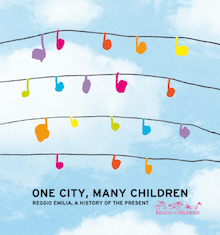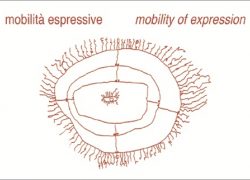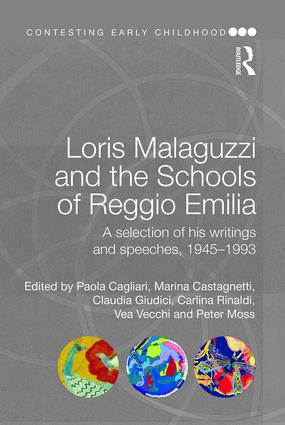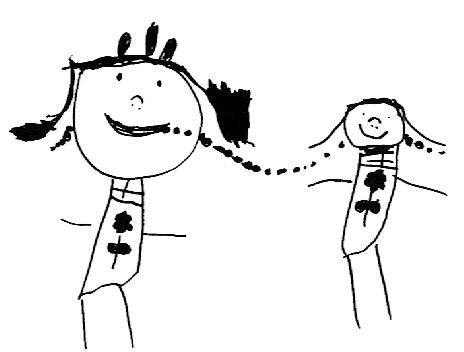Art and Creativity in Reggio Emilia
$95.00 (incl. GST)
Exploring the Role and Potential of Ateliers in Early Childhood Education
Art and Creativity in Reggio Emilia explores the contribution of art and creativity to early education, and examines the role of the atelier (an art workshop in a school) and atelierista (an educator with an arts background) in the pioneering preschools of Reggio Emilia.
11 in stock
Vea Vecchi, one of the first atelieristi to be appointed in Reggio Emilia, worked as an atelierista at the Diana Municipal Preschool in Reggio Emilia for over thirty years, doing pedagogical research and documentation in the area of children’s many languages. She now acts as a consultant to Reggio Children.
Part memoir, part conversation and part reflection, the book provides a unique insider perspective on the pedagogical work of this extraordinary local project, which continues to be a source of inspiration to early childhood practitioners and policy makers worldwide.
Vecchi’s writing, full of beautiful examples, draws the reader in as she explains the history of the atelier and the evolving role of the atelierista.
Key themes of the book include:
- processes of learning and knowledge construction
- the theory of the hundred languages of childhood and the role of poetic languages
- the importance of organization, ways of working and tools, in particular pedagogical documentation
- the vital contribution of the physical environment
- the relationship between the atelier, the atelierista, the school and its teachers.
This enlightening book is essential reading for students, practitioners, policy makers and researchers in early childhood education, and also for all those in other fields of education interested in the relationship between the arts and learning.
| Weight | .355 kg |
|---|---|
| Dimensions | 24 × 16 × 1.5 cm |







REAIE (verified owner) –
Dreaming and reconstructing realities is, according to Malaguzzi (1998), being open to the possibilities of creativity. Being aware of such possibilities sustains choices and decision-making based on purposes and assertiveness that allow us to attribute a civic, human, dignified meaning to the existence of all of us, children, and adults. (De Sousa, 2022, p.184)
This quote is a wonderful prologue to the review of one of my favourite Contesting Early Childhood books. Vea Vecchi, in her book, Art and Creativity in Reggio Emilia embraces complexity but uses metaphor in a sophisticated way so that complex ideas are accessible. She explains the process of learning as being connected and interconnected, not as a linear, but as relational, “uncertain, unpredictable and intensely creative” (Vecchi, 2010, p.xvii). She likens the process of learning to that of a rhizome, “something that shoots in all directions, with no beginning and no end, but always in between and with openings towards other directions and places.
Vea’s book delves deeply into the theory, principle and metaphor of the hundred languages. The metaphor of the hundred languages refers to the “different ways children (human beings) represent, communicate and express their thinking in different media and symbolic systems” (Vecchi, 2010, p.xvii). The hundred languages metaphor does not only refer to art, (a common misinterpretation), but instead to poetic languages; “characterised by expressive or aesthetic aspects” (Vecchi, 2010, p.xvii).
One value that is expressed clearly in the book is the value and principle of organisation. Organisation is an important pedagogical factor; one that contributes to the conditions of learning that are created for children, staff and families. Vea provides important insights into these conditions for learning, but also for sustainability and renewal which may include; the organisation of the day, the attention to contexts that are created for learning, the timetable of the staff and the spaces available for children, the choice of leadership structures being hierarchical or non-hierarchical, a determination to see pedagogical research as an ongoing process, teaching and non-teaching hours for teachers and non-teaching staff, the size of the school, consideration of the concept of childhood, co-teaching, theories of knowledge or ways of knowing and the role of the teacher. She contests predetermined curricula and hurried superficial work.
The chapters in this book have the most wonderful and poetic titles; professional marvellers, blue flowers – bitter leaves, an ethical community, visible listening and environments just to name a few. Central to all the chapters in this book is that the atelier and the atelierista are integral to the beating heart of the pedagogical project, not technocrats or specialist teachers, but rather a relational choice whose pursuit is a process of bricolage and border crossing. This book will warm up your thinking and a focus for your research for REAIE’s Landscapes of Curiosity and Creativity in dialogue with the hundred languages conference in Melbourne, July, 2023. In the words of Molly Meldrum, do you yourself a favour and immerse yourself in this provocative text.
References:
Joana de Sousa (2022) The plural uses of pedagogical documentation in Pedagogy-in-Participation, European Early Childhood Education Research Journal, 30:2, 184-199,To link to this article: https://doi.org/10.1080/1350293X.2022.2046833